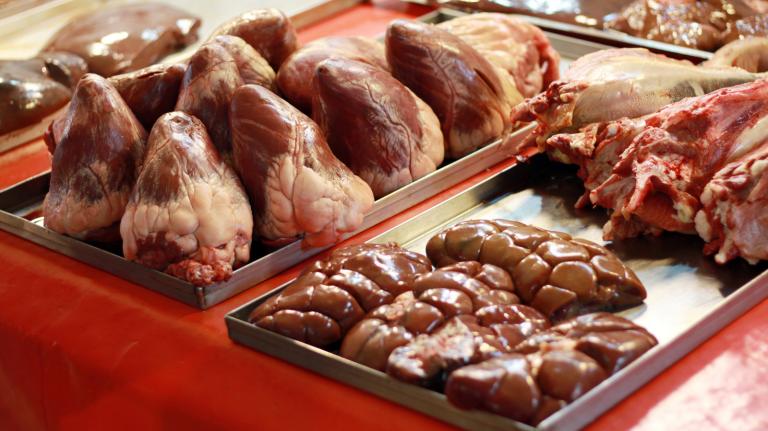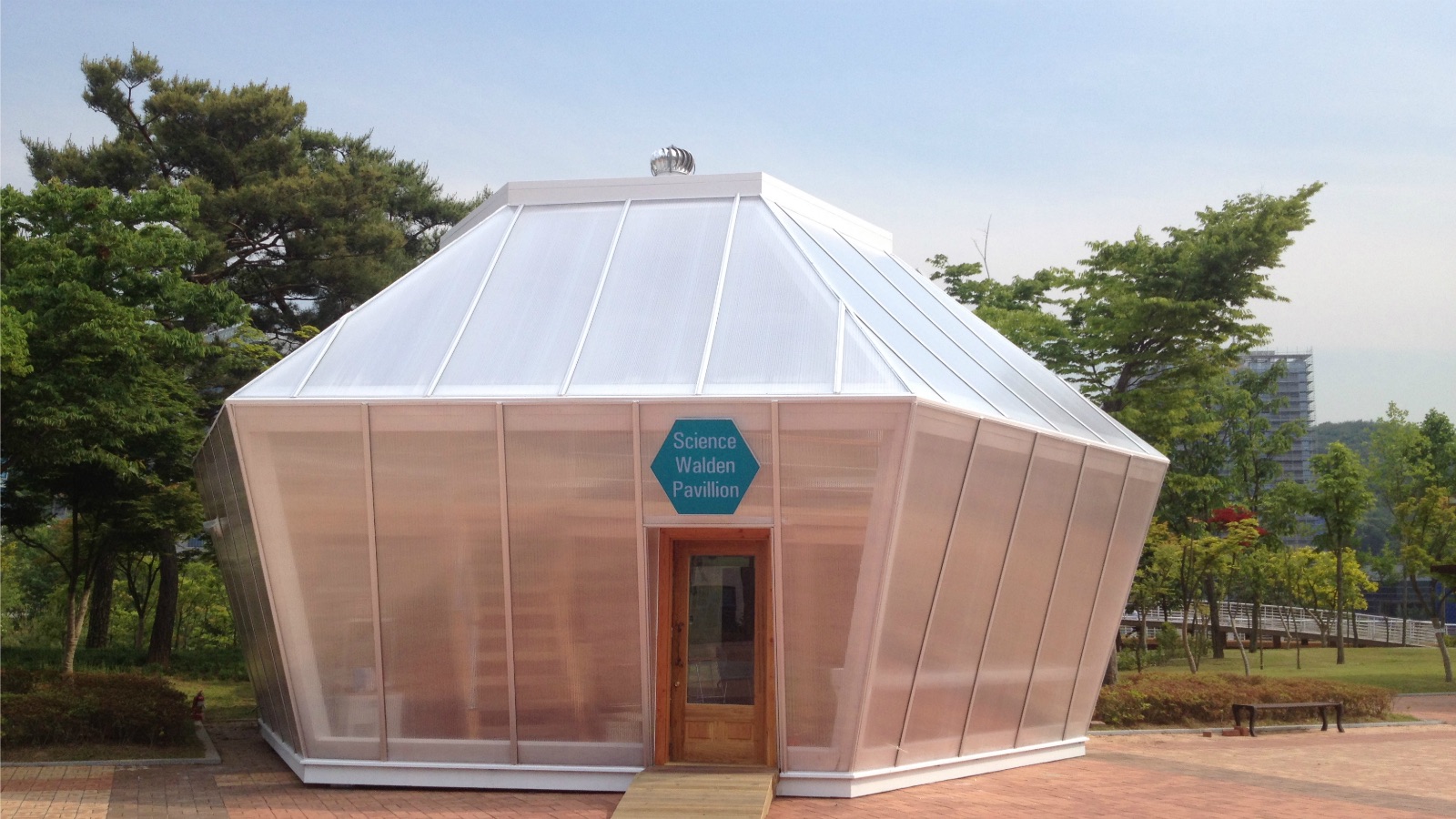In Cho Jaeweon’s dream world, each visit to the loo would basically be a trip to the bank.
Cho is the director of the Walden Science Pavilion, a research lab-slash-public toilet at the Ulsan National Institute of Science and Technology in South Korea. The hexagonal-shaped building, which opened early this June, houses a waterless toilet system that converts human waste into fertilizers and biofuel. And if Cho has his way, people will one day be paid to poop there.
The project provides a potential blueprint for home toilets that reduce water use and turn waste into renewable energy, Cho says. “We expect that this will become a pivotal stepping stone in the developing future of many countries facing dangerous sanitation issues and a lack of reliable, affordable energy.”
Here’s how the business of doing your business works: The Pavilion’s toilet system grinds fresh poo at high heat into an inoffensive-smelling powder, which then goes into a tank where microorganisms gobble up the waste and transform it into carbon dioxide and methane. Those are greenhouse gases, but Cho’s team harvests the CO2 to cultivate green algae for biofuel, while the methane is used as heating fuel. The remaining solid waste is used as manure to fertilize the pavilion’s little vegetable patch.
Turning feces into fertilizer isn’t a new idea. But here’s what is: Cho’s concept of Fecal Standard Money, or FSM, which commodifies powderized poo as a desired product.
“Feces, like gold, is limited and precious; nobody can make more than a certain limit, and it can be converted into energy,” Cho writes in an essay about supplementing our old-fashioned monetary system with a poop-based one. And crucially, unlike with greenbacks — “Everyone can make feces everyday.”
OK, so Cho’s concept probably isn’t going to replace the world financial system anytime soon. But his team has developed a smartphone app for the Pavilion’s toilet users, which tracks the weight of their treated waste and assigns a monetary value to it. Users can spend their riches on produce at the pavilion that’s been fertilized by the poo of others before them, or on other amenities at the institute. In other words, your junk is literally worth its weight in gold.
But don’t start chugging prune juice just yet. The pavilion is a prototype, giving Cho and his science team the chance to study the technical feasibility and ick-factor of having a system like it in your home.
“I was worried it would smell really bad,” says Eunho Jo, 27, a design student at the institute who recalls the stench of outdoor toilets when visiting his grandmother’s house in the countryside. “But I was surprised these ones didn’t smell at all.”
The project is funded by the government and will soon head for other cities in South Korea, with the ultimate goal of having a similar system installed in people’s houses, especially in overcrowded cities.
Jo, who has purchased a $3 cup of coffee on campus with earnings from a casual morning dump, likes the idea. “You can help the earth at the same time you’re making money,” he said. “What’s not to love?”



